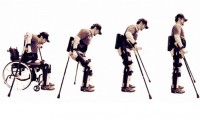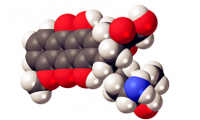-
ICR researchers demonstrate use of genetic test for prostate cancer therapy
- Source: medicaldevice-network
- 879
- October 12, 2017
-
FDA awards 15 grants for clinical trials to stimulate product development for rare diseases
- Source: fda.gov
- 873
- October 9, 2017
-
The world is running out of antibiotics, WHO says
- Source: edition
- 999
- September 22, 2017
-
IDbyDNA and ARUP Laboratories introduce diagnostic test for pneumonia
- Source: medicaldevice-network
- 876
- September 21, 2017
-
UOW researchers secure grant to develop new medical device for bedside brain monitoring
- Source: medicaldevices-business-review
- 1,140
- September 20, 2017
-
UK researchers develop medical camera to see through body
- Source: medicaldevice-network
- 757
- September 6, 2017
-
Nemaura develops medical grade diabetes management app
- Source: Drugdeliverybusiness
- 955
- September 1, 2017
-
NIH develops robotic exoskeleton to treat crouch gait in children
- Source: medicaldevice-network
- 1,209
- August 30, 2017
-
“Body-on-a-chip” device screens human heart cells for drug toxicity
- Source: drugdeliverybusiness
- 906
- August 29, 2017
your submission has already been received.
OK
Subscribe
Please enter a valid Email address!
Submit
The most relevant industry news & insight will be sent to you every two weeks.













